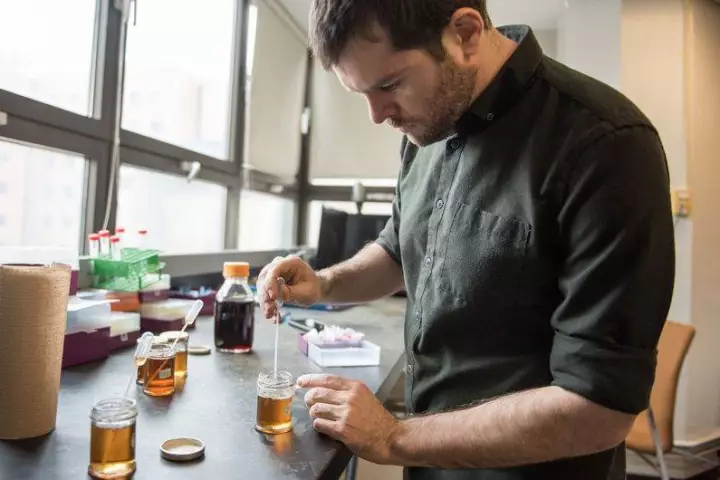University of Montreal
-
A new study has found listening to our favorite music and the emotional responses it produces, particularly if it’s bittersweet, is more effective at reducing our perception of pain than unfamiliar relaxation music.
-
A new technique may one day help restore sight to patients with inherited vision impairment. The regenerative therapy works by expressing genes that convert dormant cells into new light-sensing cells in the retina to replace those lost to disease.
-
Zoonotic viruses, which sees bugs jump from vertebrates to humans, are one of the big global health concerns that keep scientists up at night - not least because one caused the COVID-19 pandemic. Now, AI is out to help make sure history never repeats.
-
Researchers in Canada have developed a new tool that can let scientists examine proteins more closely, aiding study of disease and drug development. The team used DNA to create nanoantennas that fluoresce in response to different protein functions.
-
Aging affects everybody, so it’s easy to understand why so much scientific attention is focused on studying it. Scientists in Canada now claim to have found that telomeres play a different role in cellular aging than previously thought.
-
Even with today's various sewage-treatment technologies, a great deal of municipal wastewater is still released back into waterways either partially or completely untreated. According to a new study, however, plots of willow trees could be used to clean it up – while also producing useful materials.
-
WASP-107b was already a very weird exoplanet, with the density of cotton candy. On closer inspection, astronomers have now found that its density is even lower than previously thought, defying our current understanding of how gas giants even form.
-
Not all maple syrups are created equal. There are actually over 60 taste categories that syrups fall into, as determined by human taste-testers. Soon, though, a solution containing gold nanoparticles could save those people some work.
-
A study has followed thousands of teenagers tracking associations between screen time and depression. The research separated types of screen time, and found TV and social media activity correlated with increased symptoms of depression, but video game and computer use had little negative effect.
-
Black holes can be anywhere from a few times the mass of the Sun up to millions of times that, but some even bigger than that. A new study of data gathered by NASA’s Chandra X-ray telescope has found these so-called “ultramassive” black holes may be larger and more common than we thought.
-
With thousands of exoplanets confirmed, it's now possible to learn something about how they are organized. An international team of scientists has found that exoplanets revolving around the same star show a pattern of similar sizes and regular orbital spacing.
-
Antibiotic-resistant bacteria are rapidly becoming an urgent global health issue, But researchers at the University of Montreal may have found a new weapon in the war, by preventing bacteria from transferring genes to each other that help them develop resistance to antibiotics.
Load More











